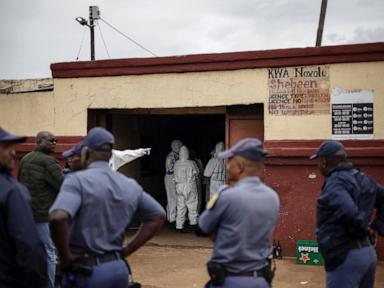Senator Warns of Job Dislocation Amid Economic Challenges

Senator Mark Warner, the top Democrat on the Senate Intelligence Committee, underscored significant concerns about the U.S. job market and economic data during an interview on “Face the Nation” with Margaret Brennan on September 7, 2025. He emphasized that while the Bureau of Labor Statistics (BLS) remains a respected institution, recent changes at the federal level could undermine its reliability.
Warner noted the irony in the current administration’s approach to economic data, stating, “It’s a little ironic that you’re firing the referee, the president firing the head, cutting the staff. I’m not sure how that is going to improve the quality of the data.” He pointed to a troubling trend of 80,000 manufacturing jobs lost since the beginning of the president’s term, asserting that the job market remains particularly challenging for new graduates entering the workforce.
The senator expressed concern over the impending impact of artificial intelligence (AI) on employment, suggesting that many college-driven jobs could be at risk. “I believe we’re about to see the biggest job dislocation in our history in terms of AI job dislocation,” Warner said, highlighting the contradiction in advising young people to pursue careers in programming while the demand for those skills may soon decline.
Regarding the recent meeting at the White House involving tech leaders like Bill Gates and CEOs from Google and Apple, Warner acknowledged the praise for the administration’s investment in chip manufacturing. However, he clarified that the foundation for this investment was laid by the Chips Infrastructure Act, which he co-sponsored with John Cornyn. This bipartisan legislation allocated $52 billion to bolster domestic chip production.
Warner criticized President Trump’s contradictory policies concerning chip manufacturing and exports, particularly regarding Nvidia H-20 chips sold to China. “It is a complete contradiction in policy,” he stated, questioning how the administration could advocate for American manufacturing while simultaneously easing restrictions on advanced chip exports.
The discussion shifted to issues of intelligence oversight, with Warner expressing frustration over being blocked from attending a meeting at the National Geospatial Intelligence Agency in Virginia. He pointed to the unusual involvement of controversial figures, like right-wing blogger Laura Loomer, in influencing intelligence operations. Warner questioned whether Loomer had undue influence within the administration, stating, “It raises the question, is she actually the Acting Secretary of Defense?”
Warner insisted that congressional oversight is crucial for national security, warning that restricting access to intelligence information jeopardizes public safety. “If we put our sailors in harm’s way by violating international law, could this come back and hurt those sailors?” he asked, reflecting on a recent military operation targeting drug trafficking linked to the Venezuelan regime.
The senator concluded by emphasizing the need for transparency and timely information sharing within intelligence agencies. He expressed concern about the politicization of intelligence, stating, “When you start making oversight and who gets shared information on a partisan basis, this kind of cooking the books and intelligence could lead us into another conflict.”
This interview sheds light on critical national issues as Warner navigates the complex landscape of economic challenges, job security, and intelligence oversight in a rapidly changing world.






